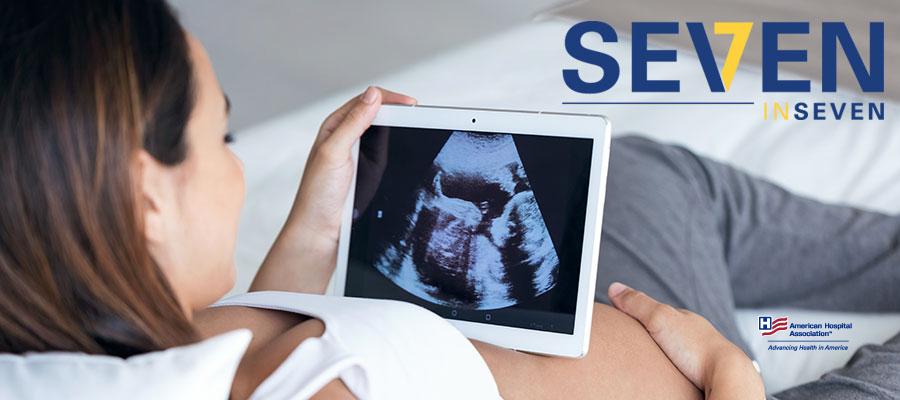New series explores digital solutions for perinatal care

The next generation of moms and families are more-frequently experiencing new tech-based approaches to improving one’s pregnancy or birthing journey. Digital platforms now allow for chat- and text-based navigation services, remote-patient monitoring, maternal risk management and education, and increased access to coordinated care and support from physicians, nurses and doulas.
AHA’s new podcast series, Seven in Seven: Digital Solutions for Perinatal Care, explores the use of these solutions by health care organizations to improve care and outcomes for moms and their families. The series is true to its name – seven-minute conversations with seven experts, representing AVIA, Providence St. Joseph Health, Boston Medical Center, Froedtert & The Medical College of Wisconsin, CommonSpirit Health, MedStar Health and Connecticut Children’s.
Sarah Carroll, senior director for AVIA’s Center for Care Transformation kicks off the series with a discussion on technology-enabled navigation services.
“These solutions are able to chart mothers and babies’ vital signs and overlay algorithms to spot concerning trends and alert the care team, before it's too late,” Carroll said. “Bidirectional navigation technology can reduce the ‘uncomfort’ of asking someone a difficult question, such as the need for transportation to get to a prenatal appointment, or the lack of healthy food to support baby's growth.”
Additionally, Carroll notes, moms can better engage in their own self-care and build a more comfortable, trusting relationship with their providers.
The key takeaways across my seven conversations are that these digital solutions allow care teams to use more standardized protocols, improve clinical decision-making, increase collaboration and communication among providers, mothers and their families, and increase access to care.
But it’s important for hospitals and their tech partners to ensure equitable access to patient-facing solutions. While 97% of Americans have a cellphone of some kind, such prevalence does not guarantee access to care. Most importantly, owning a cellphone does not equate to better understanding of one’s health.
To fully benefit from these digital solutions, we must address, with clear intent, digital health equity. As speakers in this podcast series share, hospitals and health systems need to recognize the increasing disparities in the populations they serve, address language barriers and include the voices of underrepresented patients and providers when designing digital solutions.
To learn how AHA members are using a digital solution for better perinatal care, listen to the full series.
Are you using a digital solution to improve perinatal outcomes? Email me at pbathija@aha.org.
Priya Bathija, J.D., MHSA, serves as AHA’s vice president of strategic initiatives.

